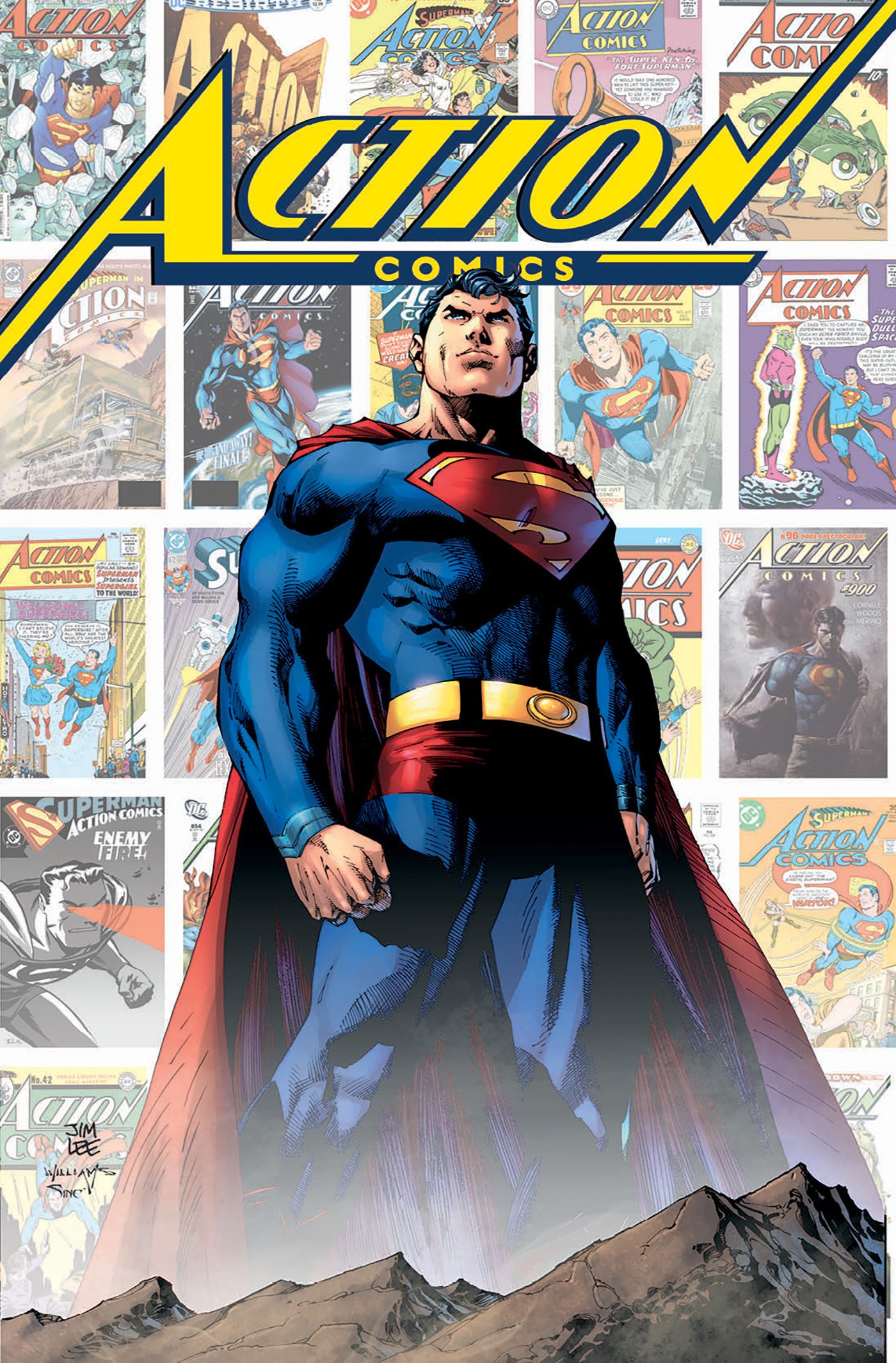Action Comics 80 Years of Superman: The Deluxe Edition
/Action Comics 80 Years of Superman: The Deluxe Edition
DC Comics, 2018
The long, colorful story of a superhero comic book reaching the mega-landmark of issue #1000 began back in 1938 when Action Comics #1 appeared on newsstands and confronted harried commuters and unsuspecting kids with a garish cover illustration: a costumed man lifting an automobile over his head and smashing it against a rock! DC has now commemorated that milestone with Action Comics 80 Years of Superman: The Deluxe Edition, a lavish anthology chronicling Superman's colorful career through a series of reprints and original content.
Long-time Superman fans will necessarily need to have a copy of this book, since the character's appearance not only revolutionized pop culture but single-handedly created the genre of superhero comic books. As legendary comics scribe Paul Levitz puts it in his essay for this book, when Action Comics hit the stands in 1938, only a dozen or so titles of any kind were being published, and “ACTION changed all that”:
Superman changed all that – his first super-powered feat. He took a mild-mannered infant industry and art form and revealed that it had the power to make imaginations leap tall buildings, to make hearts pound faster than a locomotive and to make the business bullets that would fell his competitors bounce off his chest.
What followed was first a trickle and then a river and then a massive torrent: comics, comic strips, a Broadway show, endless merchandise, endless imitators, radio dramas, TV serials, and big-screen movies. And all along, Action Comics kept publishing the adventures of its main character. From the beginning, the magazine's pages were often shared with backup features starring other heroes – a tradition that's given an affectionate but somewhat distracting nod in this big new commemorative volume by diverting some pages to old adventures of characters like Zatara the Magician, the Vigilante, or the Human Target.
But there's never any doubt who the main attraction is, and this “Deluxe Edition” gives readers a wide variety of interpretations by comics writers like Levitz, Cary Bates, Otto Binder, Mort Weisinger, and Len Wein, with words brought to life by great panel-artists like Carmine Infantino, Gil Kane, John Byrne (doing his own writing), and the most iconic Superman artist of them all, Curt Swan. In “The Game,” a short bit created for this anthology, the writing is done by Levitz and the art is by Batman-favorite Neal Adams. Through these and other talents assembled here, readers get a wild assortment of adventures, from Superman encountering the intergalactic villain Brainiac to the arrival on Earth of Superman's cousin Supergirl to newer interpretations of the character featuring a good deal more introspection than was evident in the wise-cracking bruiser first created by Cleveland teenagers Jerry Siegel and Joe Shuster.
Although it seems like Superman has been a steady part of Americana forever, that element of change has actually defined the character. As Boston-based journalist and biographer Larry Tye puts it, “Superman has evolved more than the fruit fly” – and almost always in touch with the times:
Superman has evolved more the the fruit fly. In the 1930s he was just the crime-fighter we needed to take on Al Capone and the robber barons. In the '40s he defended the home front while brave Gis battled overseas. In the early years of the Cold War he took on communist spies, while in its waning days he tried to single-handedly eliminate nuclear stockpiles. For each era, he zeroed in on the threats that scared us most, using powers that grew or diminished depending on the need. So did his spectacles, hairstyle and job title. Each generation got the Superman it needed and deserved. Each change offered a Rorschach test of the pulse of that time and its dreams. Superman, always a beacon of life, was a work in progress.
That work in progress has now reached a whopping 1000 issues – a legacy that couldn't possibly be fully encapsulated even in a book this big, so long-time fans will doubtless have their minor gripes about this or that gem left out by the editors. But there'll be second chance in another thousand issues.
Steve Donoghue was a founding editor of Open Letters Monthly. His book criticism has appeared in the Boston Globe, the Wall Street Journal, and the American Conservative. He writes regularly for the National, the Washington Post, the Vineyard Gazette, and the Christian Science Monitor. His website is http://www.stevedonoghue.com.


